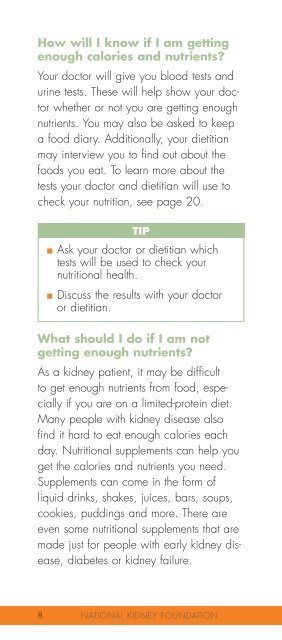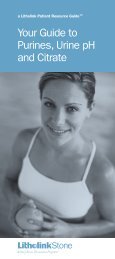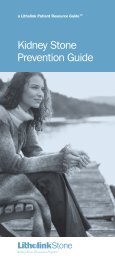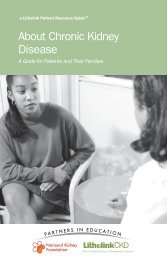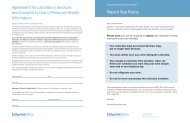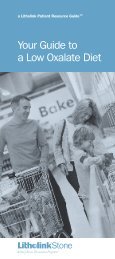Nutrition and Early Kidney Disease - Litholink
Nutrition and Early Kidney Disease - Litholink
Nutrition and Early Kidney Disease - Litholink
Create successful ePaper yourself
Turn your PDF publications into a flip-book with our unique Google optimized e-Paper software.
How will I know if I am gettingenough calories <strong>and</strong> nutrients?Your doctor will give you blood tests <strong>and</strong>urine tests. These will help show your doctorwhether or not you are getting enoughnutrients. You may also be asked to keepa food diary. Additionally, your dietitianmay interview you to find out about thefoods you eat. To learn more about thetests your doctor <strong>and</strong> dietitian will use tocheck your nutrition, see page 20.TIPn Ask your doctor or dietitian whichtests will be used to check yournutritional health.n Discuss the results with your doctoror dietitian.What should I do if I am notgetting enough nutrients?As a kidney patient, it may be difficultto get enough nutrients from food, especiallyif you are on a limited-protein diet.Many people with kidney disease alsofind it hard to eat enough calories eachday. <strong>Nutrition</strong>al supplements can help youget the calories <strong>and</strong> nutrients you need.Supplements can come in the form ofliquid drinks, shakes, juices, bars, soups,cookies, puddings <strong>and</strong> more. There areeven some nutritional supplements that aremade just for people with early kidney disease,diabetes or kidney failure.8National <strong>Kidney</strong> Foundation


